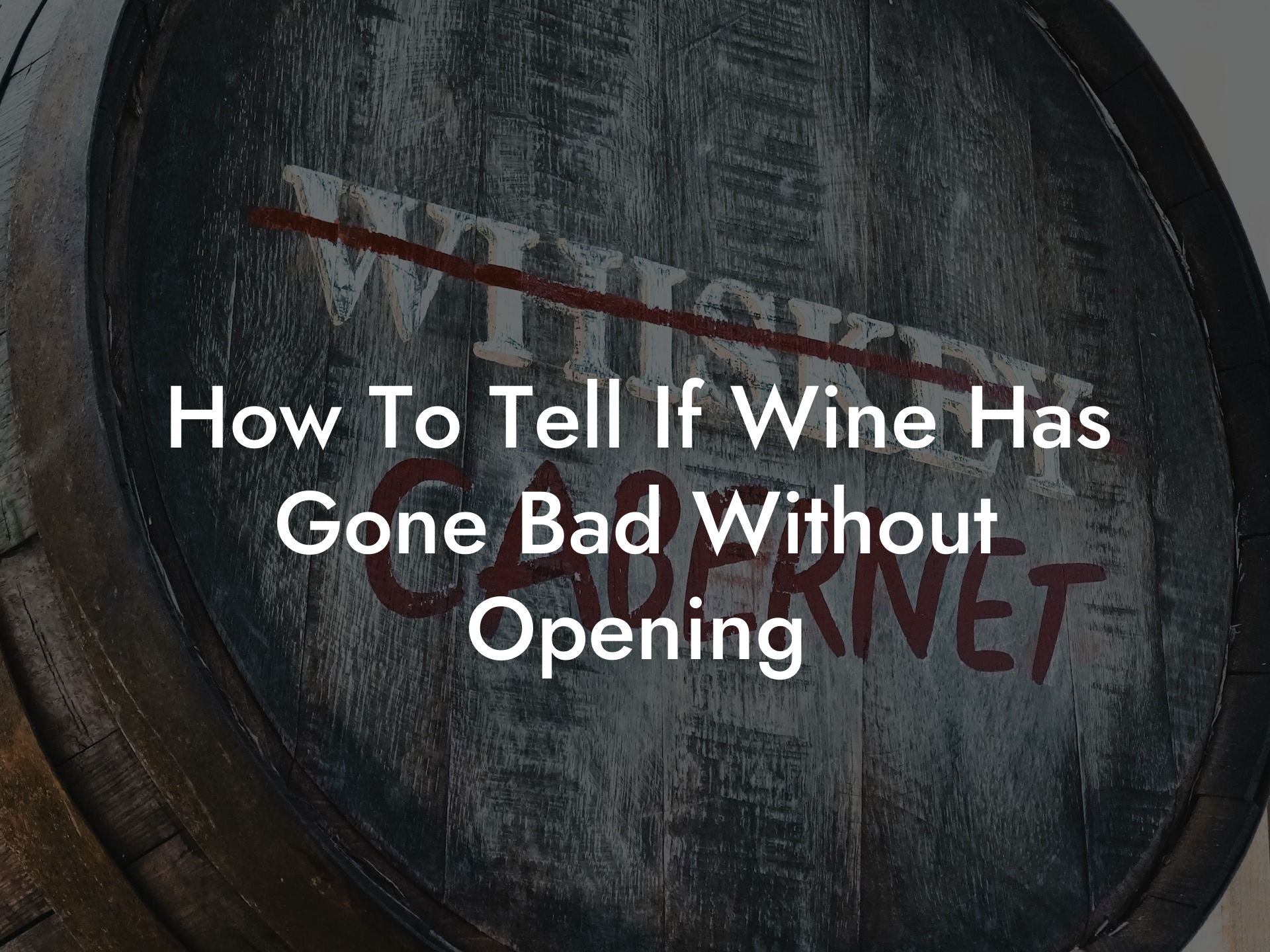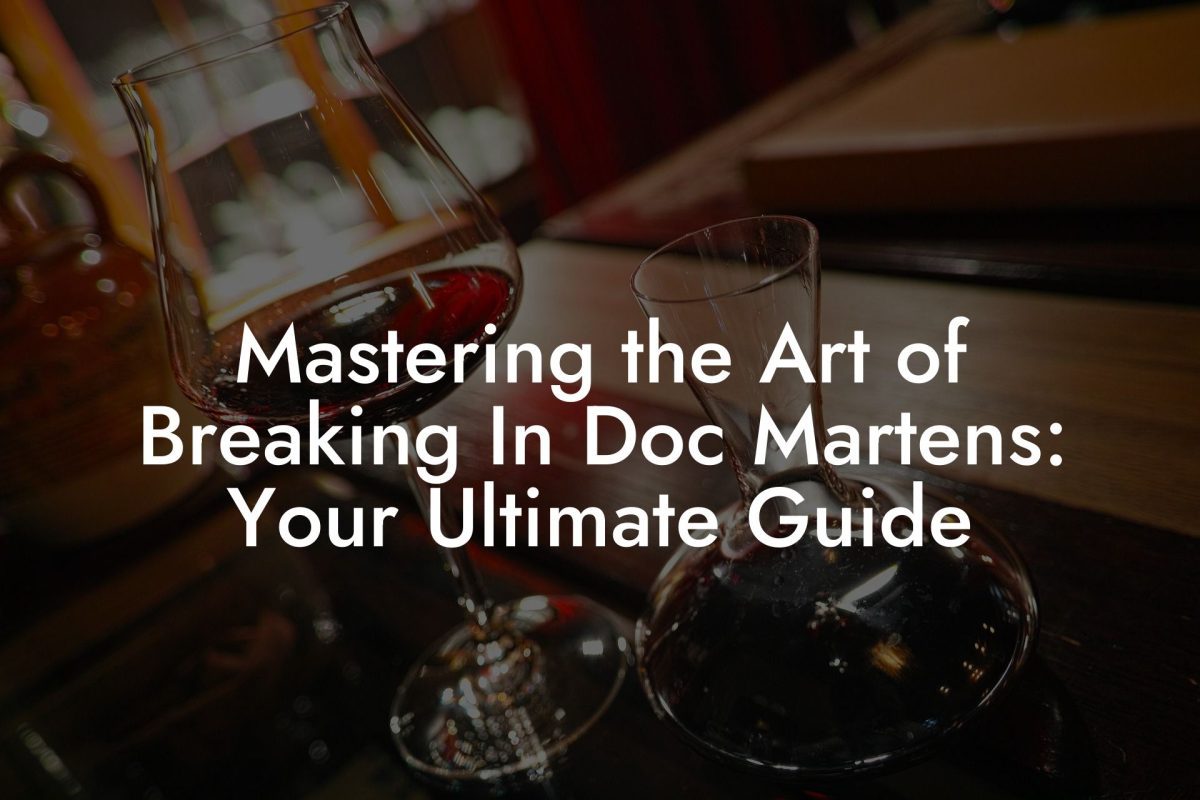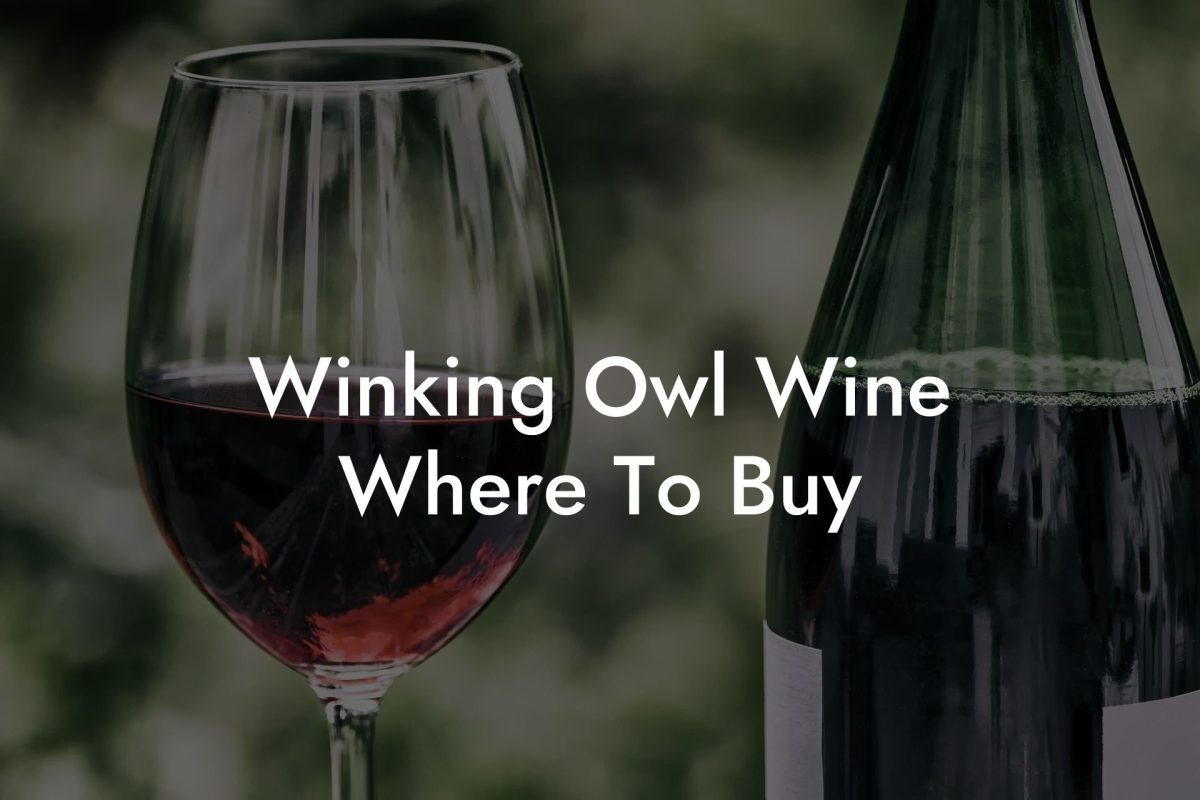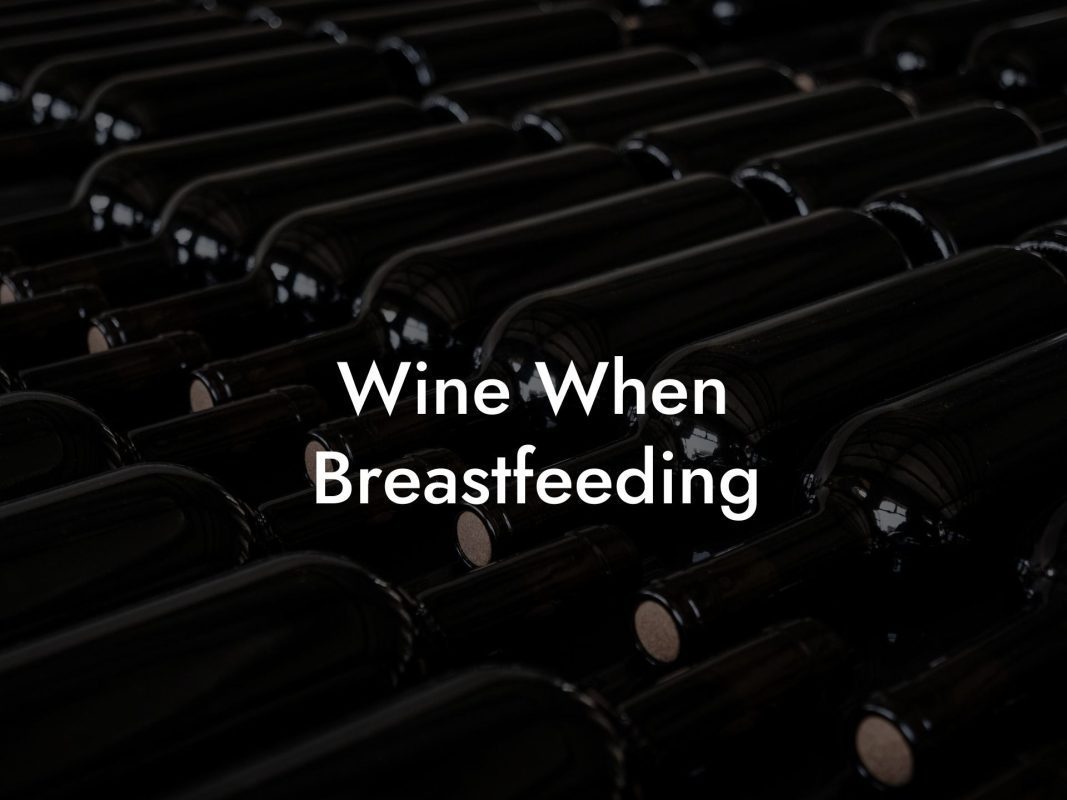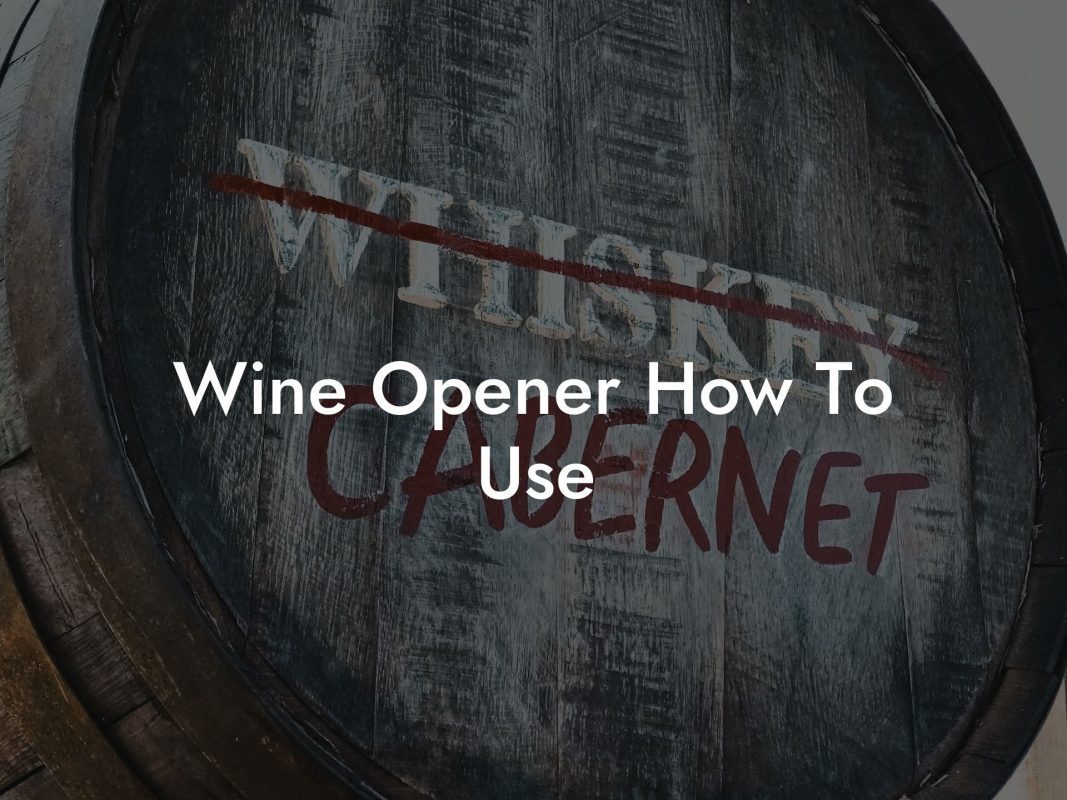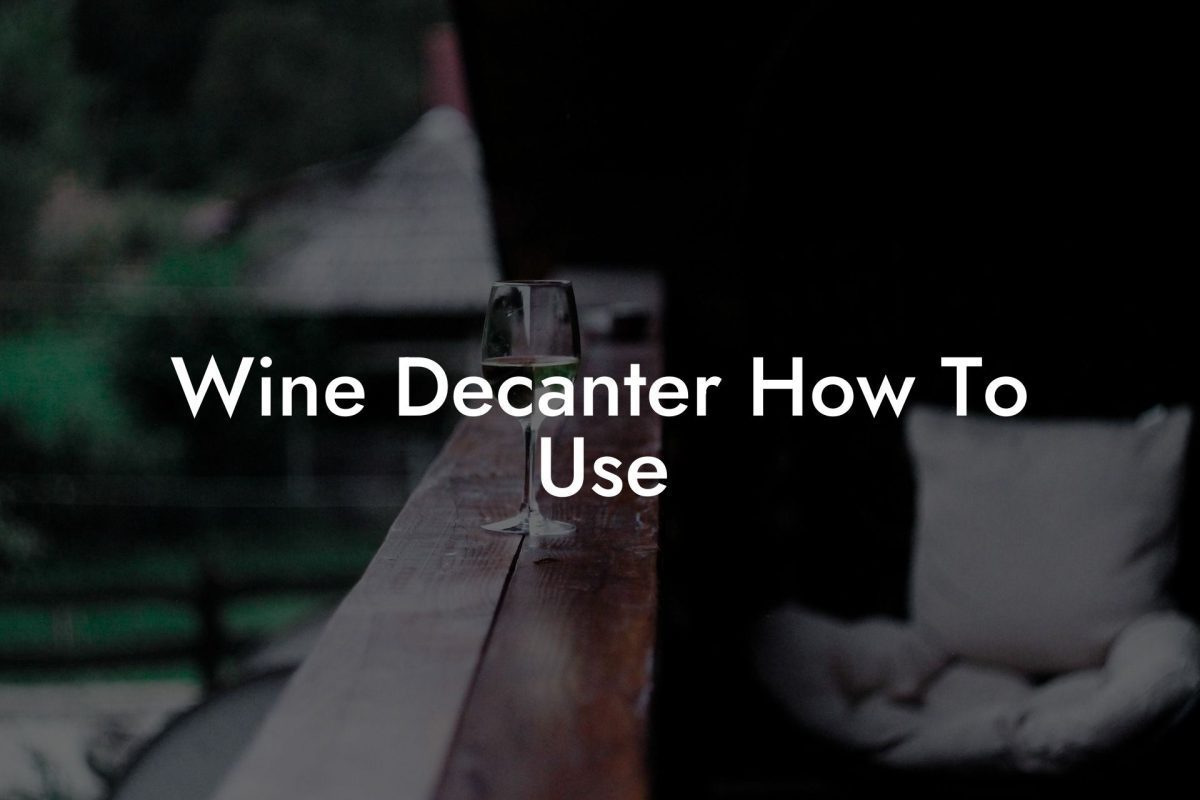Picture this: you've just discovered an old bottle of wine hidden in the back of your cupboard and you can't remember when you bought it or if it's still good to drink. The excitement and curiosity are palpable, but how can you tell if the wine has gone bad without opening the bottle? Let's dive into some useful tips and tricks to help you determine if that mysterious bottle of vino is worth savouring or better off down the drain.
How To Tell If Wine Has Gone Bad Without Opening Table of Contents
Check the Bottle's Condition
Look for Signs of Leakage
One of the first things to check on an unopened bottle of wine is if there's any evidence of leakage or seepage. A telltale sign is a dried, crusty residue around the cork or cap. This could mean that the wine has been exposed to air, which can cause spoilage or oxidation.
Inspect the Cork
If the bottle has a cork, take a close look at its condition. A pushed-up cork or one that seems partially pulled out may indicate that the wine has expanded due to heat exposure. This may have caused the cork to be pushed outwards, allowing air to enter and spoil the wine.
Do You Want to Win a Free Bottle of Wine?
Don't miss out on the opportunity to win a free bottle of wine every week.
Enter our weekly prize draw today!
Examine the Fill Level
The fill level, or ullage, is the space between the wine and the top of the bottle. A significantly low fill level in an unopened bottle is a red flag that the wine might have evaporated or leaked, which could compromise its quality.
Assess the Bottle's Storage Conditions
Temperature Consistency
The temperature at which a wine is stored plays a significant role in its lifespan. Ideally, wine should be stored in a cool, dark place with a consistent temperature around 55°F (13°C). If the bottle has been exposed to extreme temperature fluctuations or excessive heat, the wine may have gone bad.
Light Exposure
Prolonged exposure to sunlight or UV light from fluorescent bulbs can damage wine, causing it to age prematurely or develop unpleasant flavours. If the bottle was stored in a place where it was constantly exposed to light, its quality might be questionable.
Humidity Level
A relative humidity of around 70% is ideal for wine storage. Too much humidity can cause the label to peel off or promote mould growth, while too little can dry out the cork, allowing air to enter and potentially spoil the wine.
Consult the Age of the Wine
While some wines improve with age, not all wines are meant to be aged for long periods. Check the vintage or production year to get an idea of how old the wine is. Research the specific wine's ageing potential or consult a wine expert to determine if it's still drinkable based on its age.
Imagine you found a 10-year-old bottle of red wine stored in your basement, and you want to know if it's still good to drink. Here's how to apply the above tips:
1. Inspect the bottle for any signs of leakage or seepage. If there's dried residue around the cork, it might have been exposed to air.
2. Check the cork's condition; if it appears to be pushed up or partially pulled out, this could be due to heat exposure.
3. Assess the ullage; if the fill level is significantly low, the wine might be compromised.
4. Consider the storage conditions. If the basement has a consistently cool temperature, limited light exposure, and adequate humidity levels, the chances of the wine being drinkable are higher.
5. Research the specific wine to determine its ageing potential; if it's a quality red wine known for ageing well, you might be in luck.
Now that you've learned how to tell if wine has gone bad without opening the bottle, you can confidently tackle that forgotten gem in the back of your cupboard. Whether it's a delightful discovery or a disappointing dud, at least you'll be equipped with the knowledge to make an informed decision. We encourage you to explore more wine-related content on Black Wine Club and share our helpful guides with fellow wine enthusiasts. Cheers to your next vinous adventure!
Do You Want to Win a Free Bottle of Wine?
Don't miss out on the opportunity to win a free bottle of wine every week.
Enter our weekly prize draw today!

